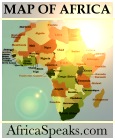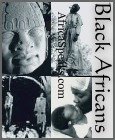Where truth should not get in the way of 'good copy'
Posted: Friday, April 6, 2007By Peter Mavunga
The Herald
THE British government and Western media campaign against Zimbabwe is notable for its rabid bias; what is said or written has no concern for the truth or balance, that is getting the other side's point of view. It has a single-minded pre-occupation with demonising Zimbabwe and propping up the opposition, especially Morgan Tsvangirai, well above his station.
All this is at variance with the age-old notion of British fair play, if ever it existed. When I was studying journalism in London, my tutor was at pains to emphasise that there were always two sides to a story and the views of both sides ought to be reported.
From what has been written about Zimbabwe over the past four weeks, though, you might be excused to think that Tsvangirai, the "blameless" leader of one faction of the MDC, was the head of state while the President of the Republic has a monopoly of doing wrong.
The disturbances that occurred in Highfield at the beginning of last month caused injuries on both sides, yet the way the story was reported tells a different story. The newspapers here have a selective memory.
The pictures that accompany this week's London Letter depict the violence of the MDC. It is, therefore, not surprising that they never appeared anywhere in the British media. These real people, police officers serving the people of Zimbabwe, do not exist in the psyche of the British media.
British journalists saw only Tsvangirai as the victim of the "violence" of Zimbabwe's State apparatus.
In their newspapers they splashed Tsvangirai in a hospital bed with head injuries but giving long telephone interviews to journalists abroad. They did not see anything else. The violence by the opposition never features in the vocabulary of the media here neither is it given any consideration by those who serve in the government led by Tony Blair.
Presumably they will say I am being unfair to them because British journalists are banned from reporting from Zimbabwe and, therefore, cannot be expected to report what they do not see. The question is; why were they banned in the first place?
Was it something to do with their amnesia and selective memory when it came to reporting Zimbabwe? More to the point, how are they able to report so much about Tsvangirai then?
A few years ago there was media frenzy in the UK when The Guardian featured a front page story asserting that a female MDC supporter had been decapitated by a bunch of Zanu-PF youths in Magunje, Karoi. The story was a complete fabrication but as it fitted neatly into the agenda of the British Press, it received widespread coverage.
A serious political party aspiring to convince the electorate that it is fit to govern should think about its integrity and avoid using people's tragedies to achieve its political ends.
But it is an indictment of British journalism that such falsehoods, initiated by the old Daily News, should be replicated the world over without checking.
What is also interesting is that the papers here never bothered to correct their mistakes. When it became common knowledge that they had wrongly attributed the death of the Zimbabwean woman to Zanu-PF youths, they never retracted the rubbish they had been spreading.
It is done in other circumstances but when the lies are in respect of Zimbabwe no correction is necessary lest it weakens the campaign of discrediting the Government of Zimbabwe. Truth should never get in the way of running a good copy. Running the Government of Zimbabwe down, is the overarching objective.
The papers here also change their tune faster than a chameleon changes colour. In the build up to the flopped two-day stayaway this week, the papers were reporting confidently that this would be the largest demonstration Zimbabwe had ever seen
With "80 percent unemployment", so the story went, "the people of Zimbabwe, angry with the Mugabe regime were going to demonstrate because they have nothing to lose."
Their tune has changed now that the numbers, by the papers' own accounts, turned out to be lower than they had anticipated. They now say the people did not want to lose a day's wage and that many preferred to go to work where they get their only meal of the day!
I did not realise that companies in Zimbabwe are so generous that they now give their employees not just wages but lunch as well!
According to the British Press, everything bad happens in Zimbabwe.
Another feature of the media campaign here is that it is persistent and unrelenting. They have tried very hard to foster discord within the ranks of the ruling Zanu-PF party. It was said Vice President Amai Joice Mujuru had resigned not because she wanted the top job for herself but her husband is calling all the shots.
Yes, we were told he was behind all this. Then the news was that the former army commander had been arrested. Then it was said in the British papers that both the Politburo and Central Committee were divided. From this spin, they concluded that, for the President, the end was nigh.
They were, however, forced to report, albeit grudgingly, that the President had been endorsed as the sole candidate to fight the next presidential election, it was like an anti-climax for them though it never dampened their spirits. The Times, for instance, was this weekend regurgitating the same old story of disunity as if it was reporting it anew.
Clearly, President Mugabe had a good conference in Tanzania and one British journalist was forced to concede that he returned home "with a spring in his step."
The media hype had proved to be no more than the usual British froth and bubble. They had anticipated that the President would be told in no uncertain terms that his time was up. They expected the Sadc heads of state and government to tell him he should not seek re-election.
It was said President Mbeki of South Africa was going to use his muscle to bring President Mugabe down. But the meeting came and went, leaving Sadc even more united. Sadc rightly did not think it was its duty to dictate what should happen in Zimbabwe, which they have always said is a matter for Zimbabweans.
That was tangible proof of emerging African unity and the more progressive people I speak to in this country do accept that President Mugabe and his team's principled stance on the land question is to be admired.
The present British government hates that principled stance with a vengeance and that hatred dates back to 1998 just before the CHOGM held in Scotland. The economy of Zimbabwe has been in difficulties since then and the British use all the tricks in the book to put the blame on President Mugabe.
Are they right to blame the President? That is the subject of my next instalment.Printer friendly version
Send page by E-Mail

Previous Page | Zimbabwe Watch | Historical Views | Home
NOTICE: All articles are the copyright property of the writers. In accordance with Title 17 U.S.C., section 107, some material on this site is provided without permission from the copyright owner, only for purposes of criticism, comment, scholarship and research under the "fair use" provisions of federal copyright laws. Visit: http://www.law.cornell.edu/uscode/17/107.shtml for more details. If you wish to use copyrighted material from this site for purposes of your own that go beyond 'fair use', you must obtain permission from the copyright owner.










